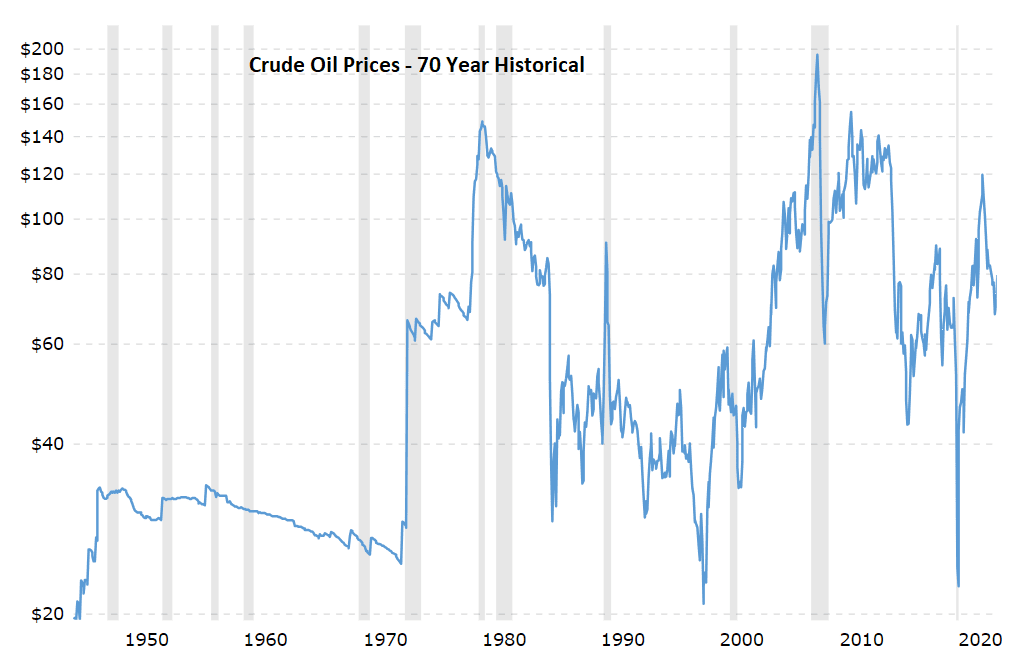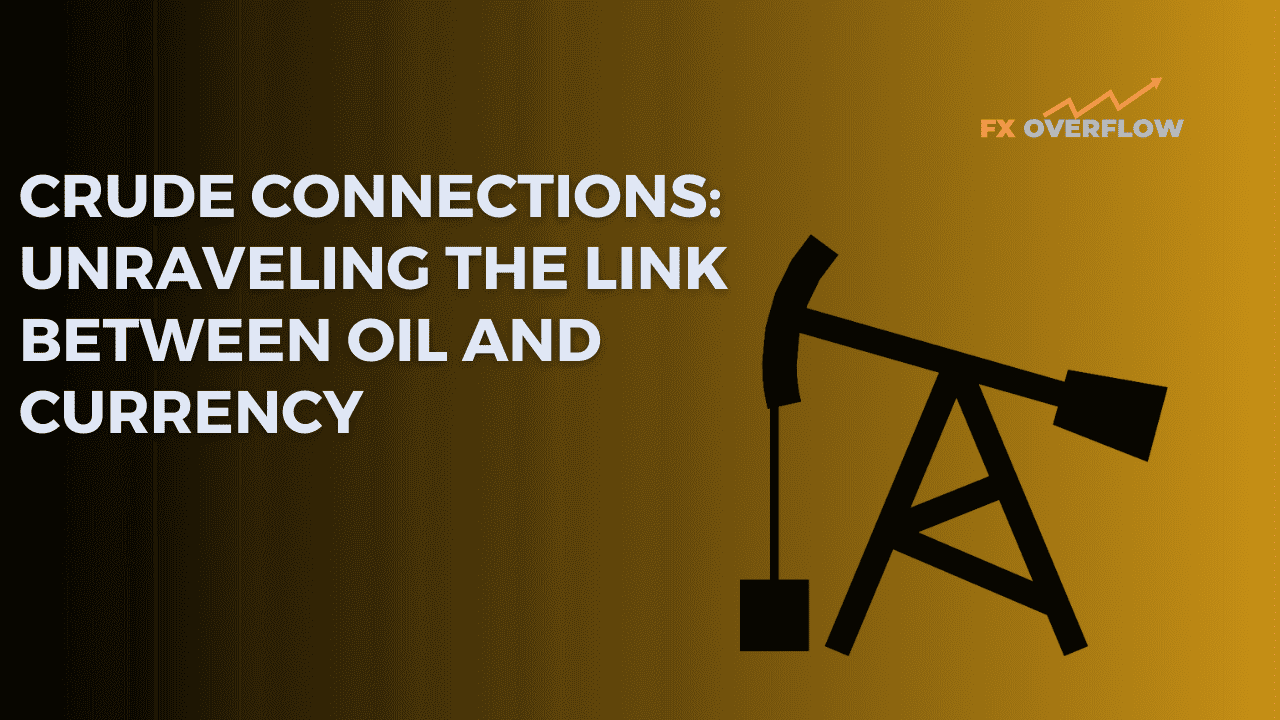Crude Connections: Unraveling the Link Between Oil and Currency
Introduction
In the intricate world of global economics, certain commodities hold unparalleled significance, and none are as crucial as oil. The backbone of modern civilization, oil serves as the lifeblood of industry and transportation, but its importance extends beyond the realms of energy. A lesser-known but immensely impactful aspect of oil's influence lies in its connection to currency values. In this comprehensive article, we will delve into the interplay between oil and currency, exploring the dynamic relationship that shapes economies worldwide.
Table Content
1. The Basics of Oil and Currency
2. What is Crude Oil?
3. An Overview of Currency Markets
4. The Intricate Relationship Between Oil and Currency
5. The Global Ramifications
6. Charting the Course: Historical Trends
7. The Future of Crude Connections
8. Footnote
9. FAQs
The Basics of Oil and Currency
Before we dive into the intricate details, let's establish a fundamental understanding of oil and currency markets.
What is Crude Oil?
Crude oil, often referred to as "black gold," is a fossil fuel extracted from the Earth's crust. It is a finite resource that exists in various forms, including Brent Crude, WTI Crude, and OPEC Basket. Countries with substantial oil reserves often rely on oil exports as a major source of revenue.
An Overview of Currency Markets
Currency markets, also known as the foreign exchange or forex market, facilitate the exchange of one country's currency for another. Currency values fluctuate based on several factors, including economic performance, interest rates, inflation, and geopolitical stability.
The Intricate Relationship Between Oil and Currency
1. Petrodollar System: A Symbiotic Arrangement
The petrodollar system is at the core of the oil-currency connection. In the 1970s, major oil-producing nations, led by OPEC, agreed to price oil exclusively in U.S. dollars. In return, these nations received military protection and support from the United States. As a result, the demand for U.S. dollars increased, reinforcing the currency's global reserve status.

2. Oil Price Shocks and Currency Volatility
Oil price shocks, caused by sudden and significant changes in oil prices, have ripple effects across financial markets. These shocks can lead to currency volatility, particularly in countries heavily dependent on oil imports or exports. For example, an oil-importing nation may experience a depreciation of its currency when faced with rising oil prices.
3. Economic Impact on Oil-Producing Nations
Oil-producing countries often experience the "resource curse" phenomenon, where their currencies become overvalued due to abundant oil revenues. This can harm other sectors of the economy, such as manufacturing and agriculture, as their exports become less competitive in the global market.
4. Currency Pegs and Oil Price Stability
Some countries choose to peg their currency to the U.S. dollar or other major currencies to ensure stability in their exchange rates. However, this can create challenges when oil prices fluctuate, as maintaining the peg may require significant foreign exchange reserves.
The Global Ramifications
The connection between oil and currency goes beyond individual nations and impacts the global financial landscape.
1. International Trade Balance
Oil plays a pivotal role in determining the trade balance of many countries. Oil-importing nations face higher import costs during periods of rising oil prices, leading to trade deficits. Conversely, oil-exporting nations enjoy trade surpluses but are vulnerable to revenue fluctuations based on oil prices.
2. Inflation and Interest Rates
Central banks closely monitor oil prices, as they have a direct influence on inflation rates. A surge in oil prices can lead to higher inflation, prompting central banks to adjust interest rates accordingly to stabilize the economy.
3. Geopolitical Tensions and Currency Markets
Geopolitical tensions in major oil-producing regions can impact currency markets. Political instability can lead to supply disruptions, causing oil prices to soar and affecting currency values worldwide.
Charting the Course: Historical Trends
Let's take a look at historical data to better understand the connection between oil and currency.

The Future of Crude Connections
Predicting the future of the oil-currency link is a complex endeavor. Several factors, including technological advancements, renewable energy adoption, and geopolitical dynamics, will shape the future landscape.
Footnote
In Summary, the link between oil and currency is a multifaceted and impactful relationship that extends far beyond the confines of energy and finance. The petrodollar system, oil price shocks, and currency pegs are just a few of the factors that intertwine these two vital aspects of the global economy. As we move forward, understanding and navigating the intricate dance between oil and currency will remain a critical task for policymakers, investors, and individuals alike.
FAQs (Frequently Asked Questions)
1. How does the petrodollar system influence currency values?
The petrodollar system, established in the 1970s, contributes to the demand for the U.S. dollar by pricing oil exclusively in USD. This demand strengthens the currency's position as a global reserve, impacting currency values worldwide.
2. Can oil price shocks lead to currency crises?
Yes, sudden and significant changes in oil prices can lead to currency volatility, especially in countries heavily reliant on oil imports or exports. Such shocks may trigger currency crises and economic instability.
3. What is the resource curse for oil-producing nations?
The resource curse refers to the paradoxical situation where abundant natural resources, like oil, can lead to economic challenges for a country. Overvalued currency resulting from oil revenues may harm other economic sectors, leading to imbalances.
4. How do oil prices affect inflation rates?
Oil prices directly impact inflation rates, as they influence the cost of production and transportation. Rising oil prices can lead to higher inflation, prompting central banks to adjust interest rates to manage the economy.
5. Is the oil-currency connection likely to change in the future?
The future of the oil-currency connection is uncertain, given factors like technological advancements, renewable energy adoption, and geopolitical dynamics. As the world evolves, so will the dynamics between these two critical aspects of the global economy.











Discussion